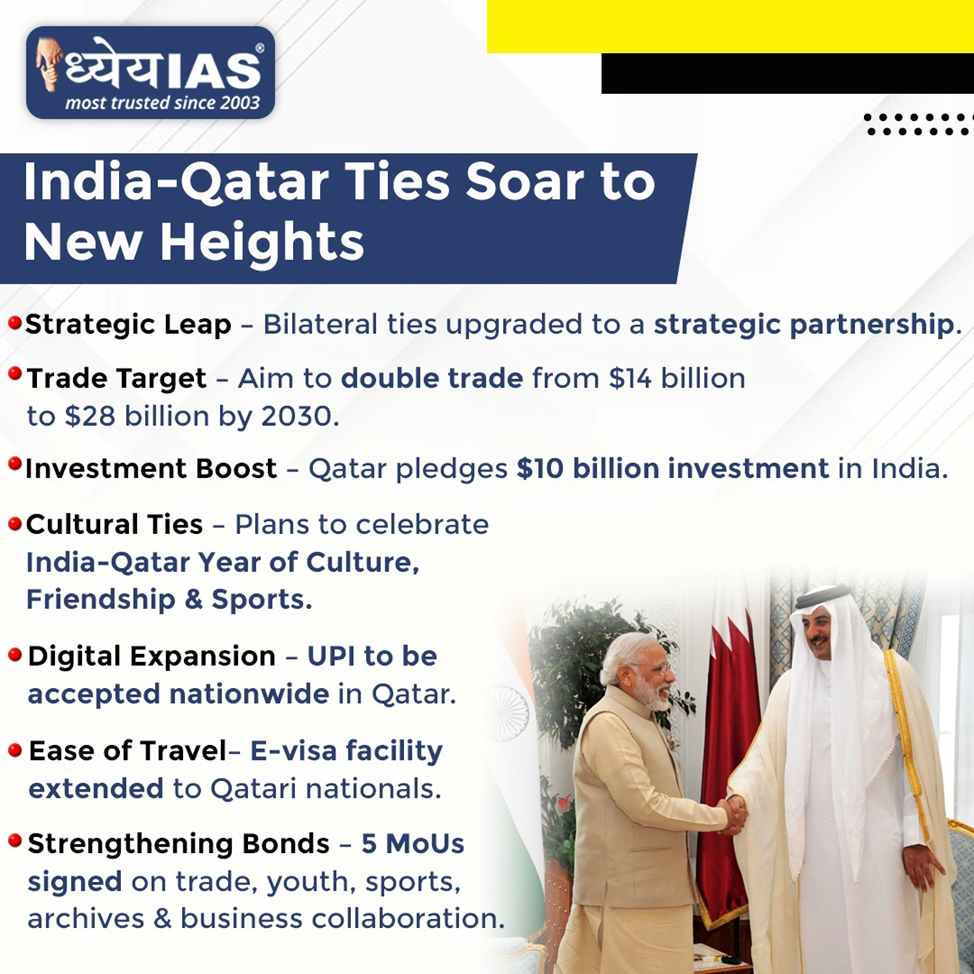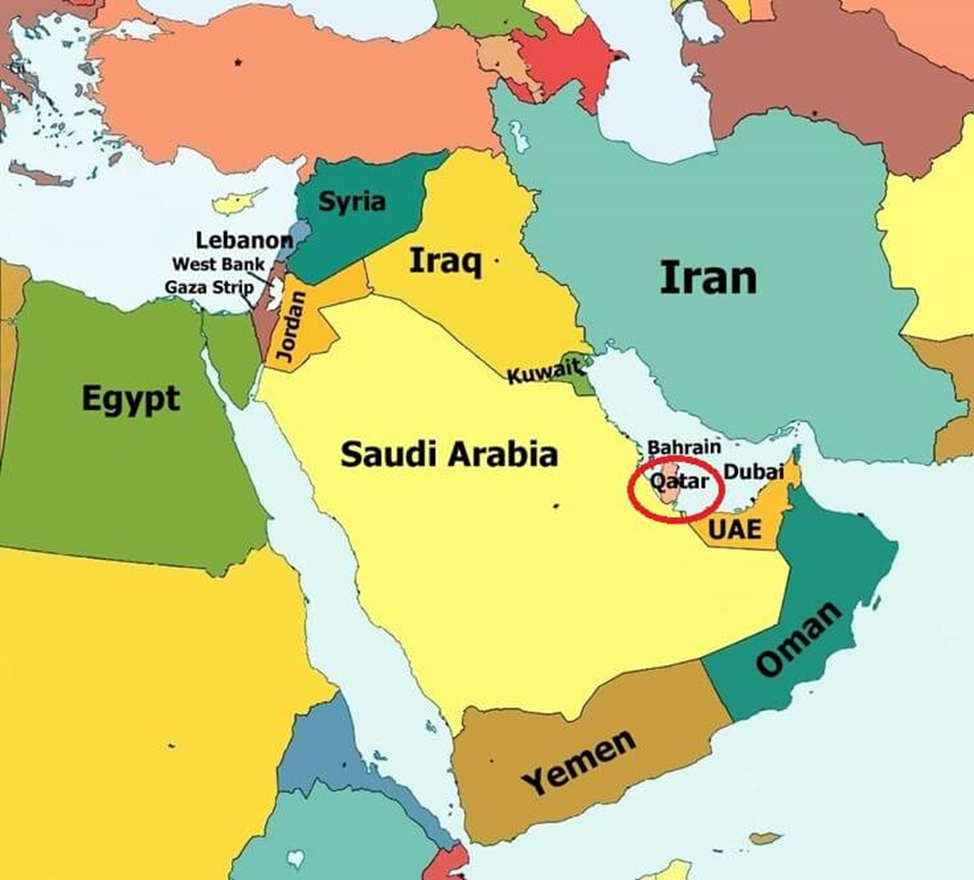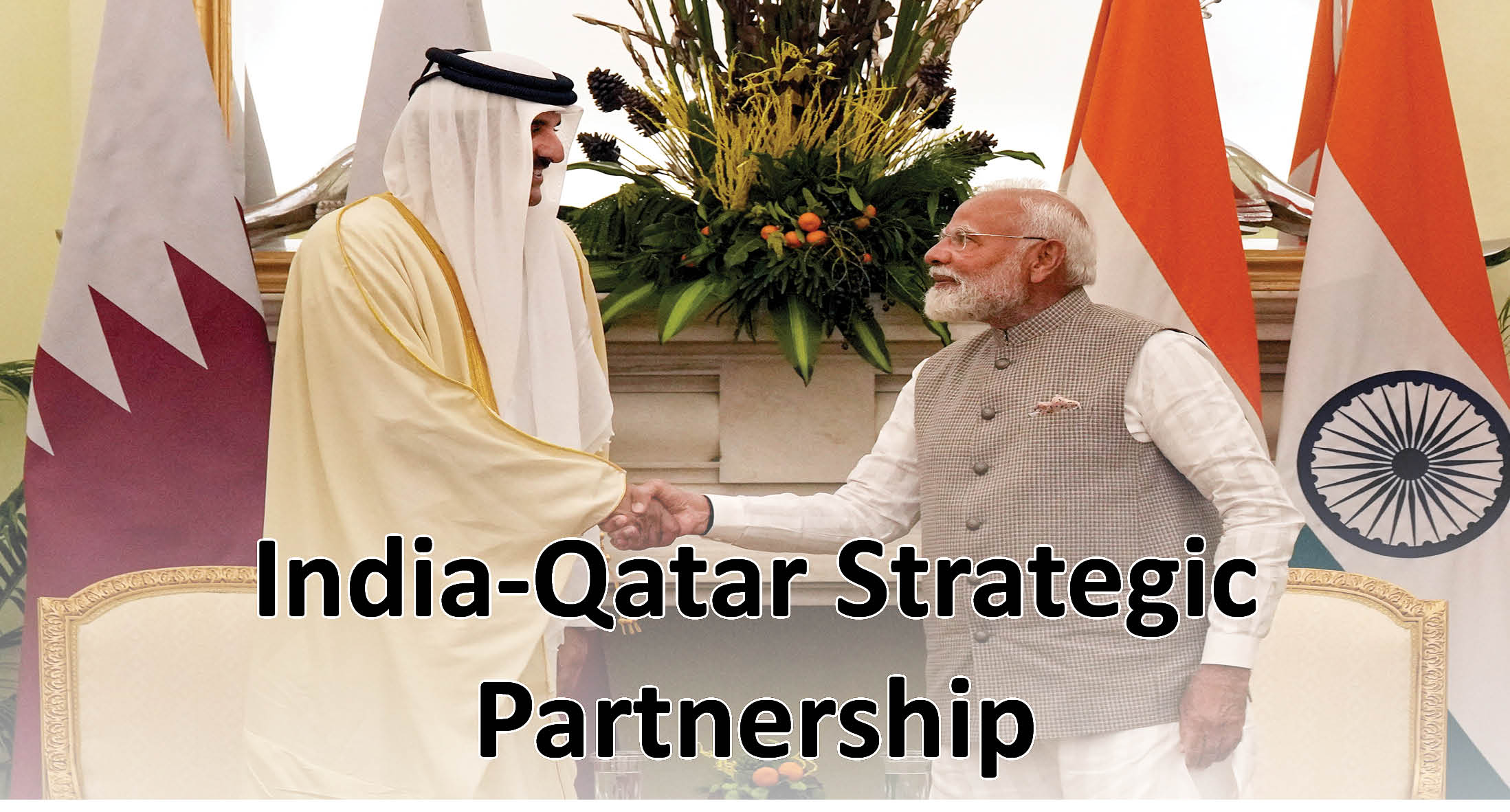The recent State Visit of Sheikh Tamim bin Hamad Al Thani, the Amir of Qatar, to India on February 17-18, 2025, marked a significant milestone in the evolving relationship between the two nations. This visit coincided with the India-Qatar Joint Business Forum, where the Ministers of Commerce from both countries, along with key stakeholders from finance, energy, infrastructure, and technology, convened to explore new avenues for economic cooperation.
During the visit, India and Qatar elevated their bilateral relationship to a Strategic Partnership, a move aimed at enhancing cooperation across multiple domains, including trade, energy, investment, and security. One of the major outcomes was the decision to double bilateral trade from USD 14 billion to USD 28 billion by 2030, with Qatar committing an additional USD 10 billion in investments in India.
This strategic alignment comes at a crucial time when both countries are navigating global economic transformations, regional power shifts, and evolving geopolitical challenges in the Middle East.
Key Highlights of the Visit
1. Elevation to a Strategic Partnership
India and Qatar have historically enjoyed warm diplomatic ties, but their decision to upgrade their relationship to a "Strategic Partnership" marks a new phase of deeper collaboration. The term "strategic" in India's diplomatic engagements is generally used in relations with key allies such as the UAE and Saudi Arabia, and its inclusion in India-Qatar ties signals a new level of commitment.
The Strategic Partnership implies greater cooperation in:
- Energy Security (continued long-term LNG and LPG supplies).
- Investment and Trade Expansion (new economic collaborations and increased FDI).
- Maritime Security and Counterterrorism (joint exercises like Za’ir-Al-Bahr).
- Technology and Infrastructure (investment in AI, fintech, and smart cities).
2. Economic and Trade Commitments
- Qatar’s sovereign wealth fund has already invested USD 1.5 billion in India and has now pledged an additional USD 10 billion, targeting infrastructure, renewable energy, and emerging technologies like artificial intelligence (AI) and machine learning.
- The two countries have set an ambitious target to double bilateral trade from USD 14 billion to USD 28 billion over the next five years.
- A Revised Agreement for Avoidance of Double Taxation was signed to facilitate smoother business transactions and prevent dual taxation.
3. Free Trade Agreement (FTA) Discussion
India and Qatar also explored the possibility of a Free Trade Agreement (FTA), which could significantly enhance economic cooperation. This discussion is part of India’s broader negotiations with the Gulf Cooperation Council (GCC) for a regional trade agreement. An FTA with the GCC would benefit multiple industries, particularly energy, petrochemicals, and services.
4. Infrastructure and Financial Integration
- Operationalization of India’s Unified Payment Interface (UPI) in Qatar was discussed, a move that could simplify financial transactions and benefit Indian expatriates.
- Qatar National Bank is considering expanding its presence in GIFT City (Gujarat International Finance Tec-City), further integrating financial services between the two nations.
5. Geopolitical and Regional Cooperation
- India reaffirmed its stance on supporting a two-state solution in the Israel-Palestinian conflict, aligning with Qatar’s mediation efforts.
- Qatar’s role as a mediator in conflicts such as Afghanistan and Gaza makes it a key regional player, indirectly influencing India’s engagement in the Middle East.

Why is Qatar Important for India?
1. Energy Cooperation
- Qatar is India’s largest supplier of Liquefied Natural Gas (LNG), accounting for 48% of India’s total LNG imports.
- It is also India’s top supplier of Liquefied Petroleum Gas (LPG), contributing 29% of total LPG imports.
- This stable and uninterrupted energy partnership is crucial as India transitions towards cleaner energy sources, reducing coal dependency while meeting its growing energy needs.
- QatarEnergy has recently signed a 20-year deal worth USD 78 billion with India’s Petronet, ensuring long-term energy security.
2. Strategic and Geopolitical Cooperation
- Qatar is central to India’s "Link and Act West" policy, which focuses on strengthening ties with GCC nations such as UAE, Saudi Arabia, Oman, and Kuwait.
- Its strategic location in the Gulf region, which supplies over 55.3% of India’s crude oil needs, enhances India’s energy security.
- Qatar’s diplomatic role in Middle Eastern conflicts, such as Afghanistan and the Israel-Palestine issue, provides India with indirect leverage in regional affairs.
3. Counterterrorism and Defense Cooperation
- India and Qatar share common interests in counterterrorism and maritime security.
- The Za’ir-Al-Bahr (Roar of the Sea) maritime exercise strengthens naval cooperation.
- Regular naval visits and training programs further enhance strategic collaboration.

India-Qatar Bilateral Relations: A Multi-Dimensional Partnership
1. Trade Relations
- Bilateral trade between India and Qatar stood at USD 14.08 billion in 2023-24, with India’s exports at USD 1.7 billion and imports at USD 12.3 billion.
- India is among Qatar’s top three export destinations (along with China and Japan) and one of Qatar’s top three import sources (along with China and the US).
- Qatar’s primary exports to India include LPG, LNG, petrochemicals, chemicals, and aluminum.
- India’s exports to Qatar include cereals, textiles, iron, steel, and machinery.
2. Investment and Business Cooperation
- Over 15,000 Indian companies are currently operating in Qatar.
- Indian firms have invested USD 450 million in the Qatari market, reflecting strong business ties.
- Recent MoUs between the Qatari Businessmen Association and Confederation of Indian Industry aim to promote business-community interactions.
3. Cultural and People-to-People Ties
- Cultural exchanges take place under the 2012 Cultural Cooperation Agreement, with 2019 celebrated as the India-Qatar Year of Culture.
- Over 835,000 Indians live in Qatar, forming the largest expatriate community (27% of Qatar’s population).
Strategic Implications and Future Prospects
- The elevation of India-Qatar ties to a Strategic Partnership marks a new era in bilateral relations. The economic and energy cooperation, along with growing defense and counterterrorism collaboration, ensures a strong foundation for future engagements.
- With the new Bilateral Investment Treaty (BIT) under negotiation, India appears willing to accommodate Qatar’s economic interests, similar to its BIT with the UAE in 2024. The flexibility in investment policies signals a mutually beneficial economic relationship.
- Moreover, Qatar’s geostrategic importance in West Asia, its mediation roles in conflicts, and its strong ties with both the US and regional actors make it a crucial diplomatic partner for India.
Conclusion
The India-Qatar Strategic Partnership is a significant development in India's engagement with the Gulf region. As both nations look to deepen cooperation in trade, energy, security, and investment, the future of bilateral relations appears promising and dynamic.
The commitment to doubling trade, increasing Qatari investments in India, and enhancing defense and financial integration highlights a growing and resilient partnership that is set to expand further in the coming years.
| Main question: Analyze the role of Qatar in the geopolitics of the Middle East and its influence on India's foreign policy in the region. |







